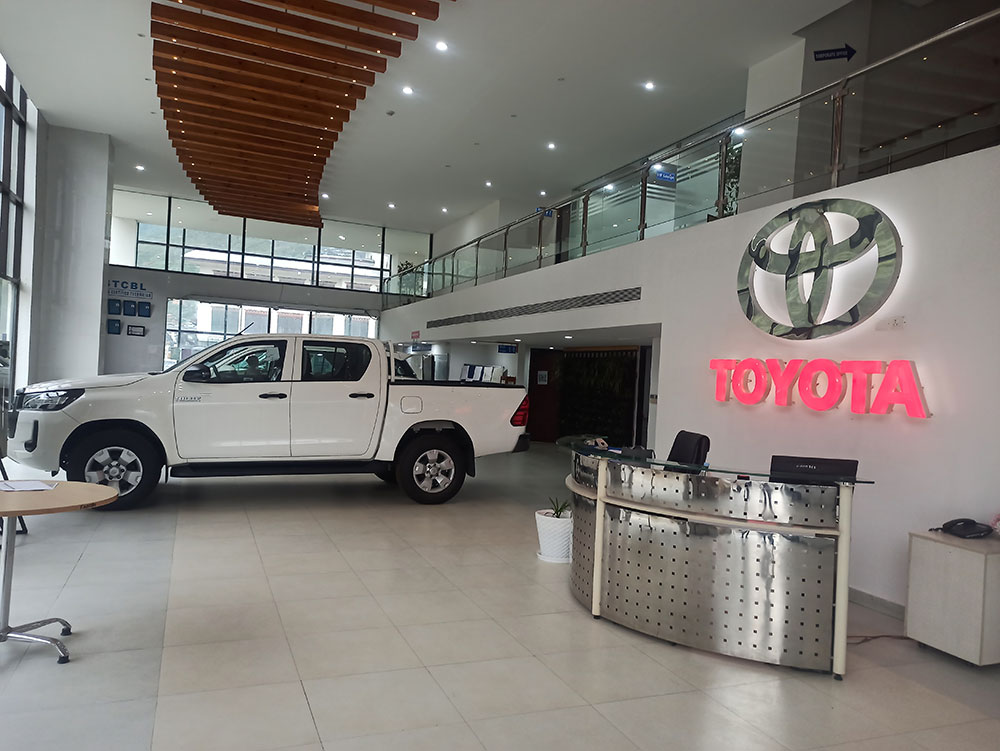Thukten Zangpo
The government’s announcement on extending the year-long moratorium on vehicle import for another six months until February 17 next year has left vehicle dealers questioning their sustainability.
The finance ministry notified yesterday that the restriction on the import of vehicles will continue to ensure maintaining an adequate foreign currency reserve to meet the cost of at least one year’s essential import.
However, utility vehicles costing less than Nu 1.5 million or equivalent to USD 20,000, heavy earthmoving machines, and agriculture machinery, tourism purpose vehicles, taxis, and buses are exempted from the moratorium.
The country’s foreign currency reserves, standing at USD 507.74 million as of May this year, have dipped below the threshold required to cover one year’s essential imports during a normal period of USD 603 million. However, it is still above USD 464 million for critical periods.
The Ministry also notified that the authorised vehicle dealers would be granted loan deferment and look into exploring the possibility of providing soft working capital at concessional rate of interest to meet the business operating expenses until the moratorium on import of vehicles is lifted in consultation with the Royal Monetary Authority.
One of the vehicle dealers said that the company had to retrench about 60 employees while trained employees have been retained over a year with no other option to diversify the business. “With the extension, there is a big problem with the sustainability of the company. The vehicle dealers expected to lift the moratorium soon.”
After the lessons learned from the 2012’s rupee crunch, she said that businesses expected the government to come up with the alternatives to cope up with. “Import capacity of a country should have been calculated earlier looking at the position of the country’s foreign currency reserves.”
She asked if there is an option for the government to absorb employees who have lost their jobs as their livelihoods are affected with inflation.
She also said that loan deferment would reduce the interest accrued and soft working loans would be helpful to provide salary for employees for a few months.
Senior general manager of the Bhutan Hyundai Motors, Pema Lodey, said that the company currently survives on the sale of spare parts and services. However, he said that overhead costs continue to be spent and income generated from the sale of spare parts and services is not sufficient.
Although the company has not laid-off employees, Pema Lodey said that they are planning to lay-off a few employees from the branch offices. “It would be a hard time for the vehicle dealers if the moratorium continues.”
A dealer said that the government could allow import of a few vehicles to meet the company’s operating cost.
The chief executive officer of State Trading Corporation of Bhutan Limited (STCBL), Tshering Wangchuk, said that extension of the moratorium was expected looking at the country’s low foreign currency reserves.
He said that a moratorium on import of vehicles will impact the company’s revenue and profit. However, he said that the company has been diversifying their businesses since a year ago.
Apart from vehicle sales, the STCBL also deals in spare parts, home appliances, bitumen, lubricants, ICT equipment, and boulder export to Bangladesh.
Bhutan’s vehicle import value reduced by 35 percent to Nu 3.27 billion in 2022 from last year. It includes passenger cars, vehicles for the transportation of ten or more people, goods transport, electric cars, and motorcycles.
In the first quarter of this year, the country’s imports burgeoned by an impressive 38 percent, climbing from Nu 22.87 billion in the same period last year to Nu 31.69 billion. Moreover, the import bill ballooned by approximately 32 percent to Nu 118.79 billion in 2022.


